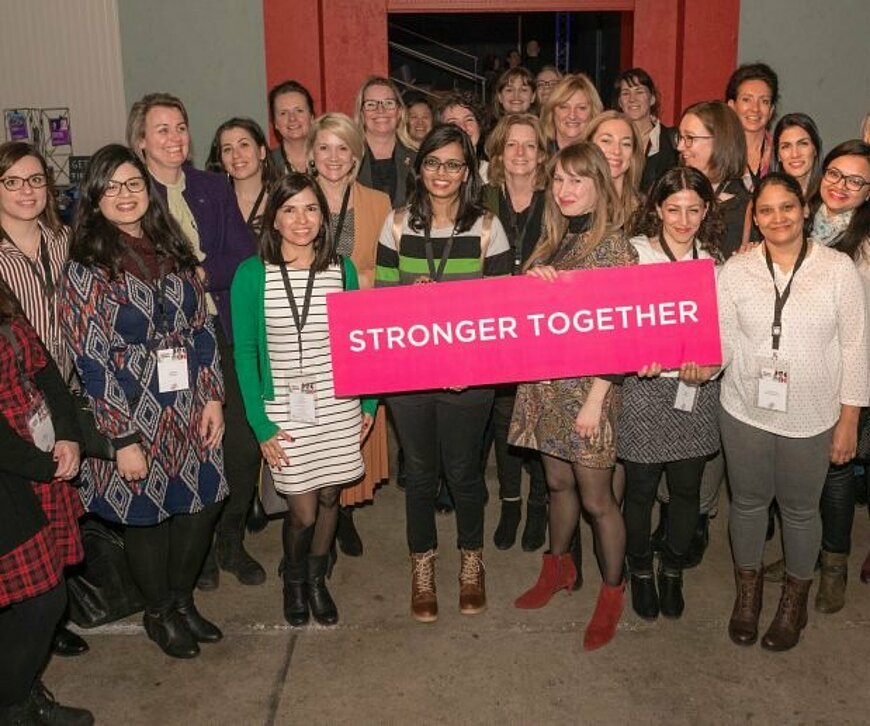Retaining foreign talent also means looking after their partners

If the partner of a highly skilled foreign employee is unhappy, the foreign adventure is often short-lived. So Brainport is organizing the "Including you" theme day.
Attracting highly skilled foreign workers is crucial for the Brainport region in Eindhoven, Netherlands, due to the presence of large international tech companies. But recruiting international talent is one thing, retaining it is another. At the “Including you” theme day on January 28, speakers from government and industry from the region will explain how they are responding to this by focusing on more diversity and inclusiveness.
The presence of international talent is essential for the competitive position of the Brainport region. However, if the spouse or partner of the so-called ‘first hire’ (person who is hired, ed.) does not feel happy in their new environment, then such a foreign adventure is often short-lived, despite the original intention to stay in the Netherlands.
Highly educated partners
The problem is that their spouses or partners, who are usually highly educated and have years of work experience outside the tech sector, do not manage to find suitable jobs. The result is not only that their family has just one income instead of two, but also a lack of self-fulfillment on the part of the partner sitting at home.
“That is exactly why we launched the ‘Living In’ project,” explains Ed Heerschap, coordinator of the “Living In” project of the Holland Expat Center South, hosted by the Municipality of Eindhoven. “With this project, we want to help create a more inclusive Brainport region. And unlike in other regions, we are working with the Expat Spouses Initiative on this from the beginning.”
Collaboration
The Expat Spouses Initiative was founded in 2014 by Kavitha Varathan. Karathan, herself from India, came to Eindhoven at the time because of her husband’s job. With the initiative, she wanted to help other spouses, like herself at the time, find their way in the Netherlands, which was unfamiliar to them. Part of that cooperation is “Women for Women.”
The Holland Expat Center South works intensively on all kinds of projects and events. One example is the theme day “Including you” on January 28, which concludes a three-month program. Such events are intended as networking opportunities for spouses. The audience is therefore largely made up of HR business partners from the region.
Small and medium-sized enterprises
With a view to providing suitable employment in the region, the Holland Expat Center South is in close contact with local government, business community and knowledge institutions. However, because most spouses (60 percent) do not come from the tech sector themselves, access to other sectors is an important asset for them.
Heerschap says: “Eindhoven is more than just Brainport and tech giants like ASML, so we are certainly also looking at small and medium-sized enterprises. The problem with this, however, is that the focus on such companies is often very local: that is, the Netherlands and Brabant. Such a company might therefore require that applicants have a command of Dutch, for example.”
Commitment
But because foreign talent does not (yet) have sufficient command of the language, such a job often passes them by. This is a missed opportunity, also for the companies themselves, especially when it comes to an industry with a high demand for foreign workers. A language barrier like that shouldn’t be an insurmountable problem, Heerschap believes. “Think, for example, of a contract in which you include the condition that the employee must learn Dutch within a year. In addition, the employer could support the employee by paying for such a course on their behalf. So it requires commitment from both sides.”
Remaining aware of cultural differences
Apart from such a commitment, awareness must be created among companies that recruiting and retaining foreign employees requires a different approach. Varatahn says: “For a foreign labor market, you often need different things than you are used to and there can be a mismatch. For example, you might not be aware of them, but there are also certain cultural norms.”
Dealing with foreign workers thus requires a different mindset. According to Varathan, who himself comes from India, many Asian employees tend to stick strictly to their job description, which sometimes leads to mutual misunderstanding. Varathan speaks from experience. “In my first job in the Netherlands, I worked more hours than I was supposed to. And yet I felt like I wasn’t quite fulfilling my employer’s expectations. With what I know now, I realize that although I worked very hard all the time, my employer expected a more proactive attitude from me. This contrasts with many Asian countries where society is less individualistic, creating a work situation where you don’t want to stand out.”
Ambassadors
These kinds of often unwritten rules make it quite difficult for foreign employees not only to find a job but also to function well in a new work environment. “At the Expat Spouses Initiative, we therefore work with local ambassadors,” Varathan explains. “These are people, predominantly women, from government, business, the knowledge industry and other fields who are willing to commit to helping spouses and partners find their way.”
If at all possible, the first contact is made even before an international recruit comes to the Netherlands. This way ambassadors can help explain the corporate culture of the companies where the newcomers would like to work. After all, a job is so much more than just work.
“Including You”
At the “Including You” event, diversity and inclusion are the central themes. Various speakers from government and business will share their experiences and future visions of their HR policies, including John Jorritsma, Mayor of Eindhoven and Chairman of the Brainport Foundation; Peter Bailliere, Executive Vice-President at ASM; and Astrid Balsink, Global Diversity & Inclusion Director at Philips.